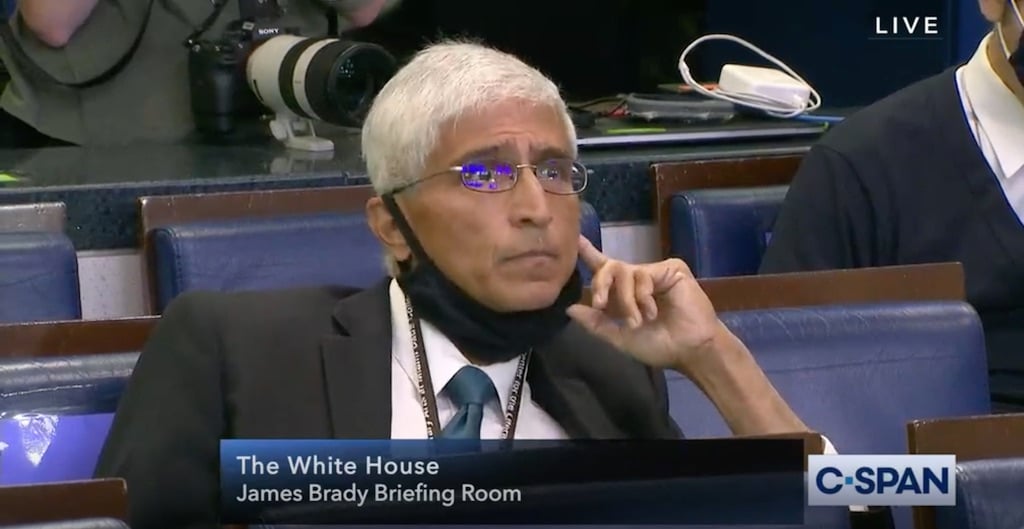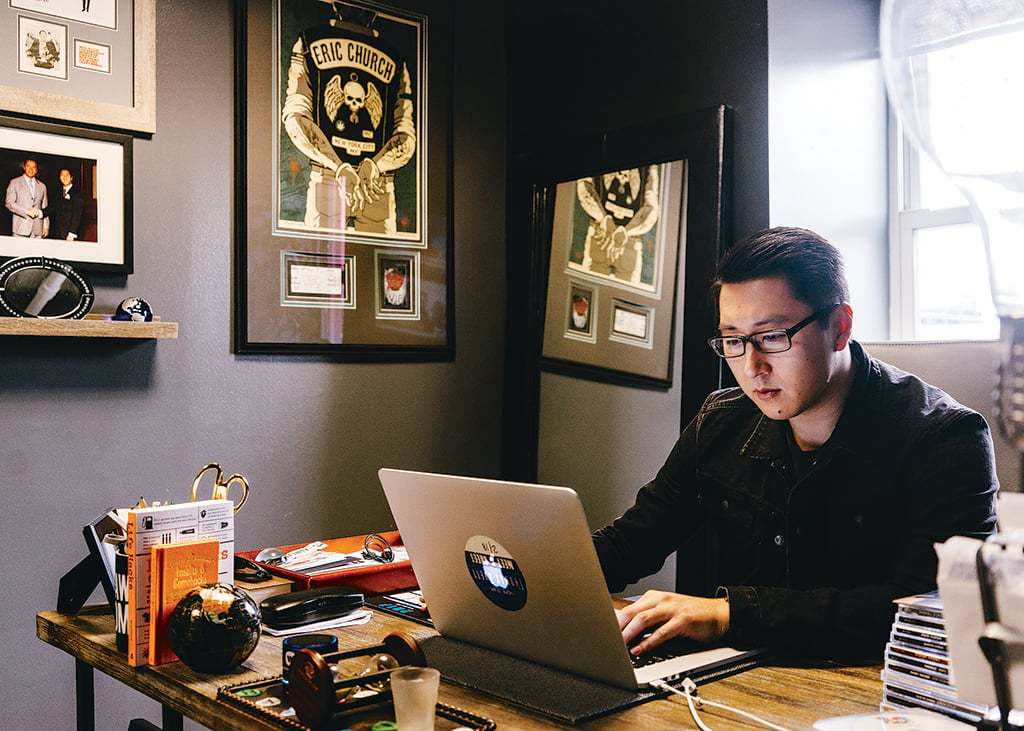Jamie Smith’s article for HuffPost Thursday had the kind of headline that was more or less guaranteed to make anyone who ran across it drop everything and click: “The Death Of Justice Ruth Bader Ginsburg Pushed Me To Join The Satanic Temple.”
“Satanic Temple” trended on Twitter, and for a bunch of MAGA influencers, it was if every one of their Christmases came at once—the Federalist even ran a piece titled “The Satanic Temple Is In Fact Emblematic Of The Leftist Worldview.” Washingtonian got Smith, an attorney who lives in the greater Washington area, on the phone to ask about why she wrote the piece and what kinds of reactions she got.
Washingtonian: So…what made you think about about writing and publishing this this piece?
Jamie Smith: I guess I’ll say some things that are maybe maybe more attorney-like than you’re looking for. But with the very real possibility that Ruth Bader Ginsburg will be replaced by an ultra conservative, I think it’s very unlikely that we will see any [Supreme Court] decisions that really promote equality and will protect women’s rights. And so as I said, in the article, even though I’ve been an admirer of the tactics of the Satanic Temple for a little while, I think their approach is brilliant. And for me, personally, and that’s why I thought this was the moment for me personally, at least to go more public with my support of what they’re doing.
How did you first became aware of the Satanic Temple and its principles that you wrote about?
I actually first became aware of them through a documentary [Hail Satan?] that came out last year. And I was fascinated with the approach they took, especially to maintaining the separation of church and state. I started paying more attention to what what what they what they’re doing, especially to protect reproductive rights. They recently came up with a reproductive rights ritual, which some of their members have used when they were seeking out abortions. And the ritual basically just involves some affirmation, repeating some of the tenets of the Satanic Temple and basically, having a woman reassure herself that she made the right choice for herself and going through with the procedure. And because the Satanic Temple is recognized as a religion under the law, it should be a religiously protected ritual. I think that’s just a brilliant strategy to use to try to safeguard reproductive rights.
It sounds like you’ve done a lot of research on them—I’m not sure if I’m asking about this the right way, but do I understand correctly that you haven’t gone to a Satanic Temple event or met with any evangelists for the Satanic Temple?
Yeah, I’m very new to it. But no, I’m not an evangelist, and I’m not a spokesperson for them. I’ve never even attended any events.
But you’re now officially a member?
Yes.
Have you met with any other members?
No, I’ve been in touch by email.
You mentioned supporting their work. Does that mean you’d be open to helping the Satanic Temple with its legal work?
Well, time permitting, I would be would be open to that.
I’m very curious what type of reactions you got after publishing this.
I had been receiving a lot of emails, earlier on in the day, yesterday when the article published, I’d say they were about 90 percent positive. Later in the day when Ben Shapiro, and other right wing pundits—I would say nuts but that’s probably not the right word—started tweeting the article, I was definitely getting a lot of emails from people who said they were praying for me or that my children would become possessed by demons and spewing a lot of anti-choice rhetoric.
Did you hear from anybody who’s become interested in joining the Satanic Temple?
Yeah, actually I heard from many people who were interested in joining. I’ve heard from a lot of people who said, at least as an initial step, they signed up for the Satanic Temple email list.
Wow, you might turn out to be the best recruiter the Satanic Temple ever had.
Possibly.
Did anything about the reaction surprise you?
I was expecting more of a negative reaction. And although in hindsight, maybe I shouldn’t have been, but I was definitely surprised that the religious right latched on to it as much as they did. Especially because I was very explicit that there is no actual devil worship.
You also brought up Unitarians.
Yeah, and I think that’s an important point to make. Because some of the criticism I got was, well, this isn’t a real religion. It’s just a set of ethical principles or guidelines. But not all religions involve belief in the supernatural. My sister was actually married by a Reconstructionist rabbi, and Reconstructionist Jews also don’t believe in supernatural or superstition, and nobody doubts that Unitarianism or Judaism is a religion. But even if others don’t agree, it is a legally recognized religion, which is an important distinction and legal strategy in bringing these cases.
What about your family and friends?
I talked to my oldest child, even before this article was published, about the Satanic Temple and why I was donating to them. I discussed the seven fundamental tenets with him. And my child said, Well, that just sounds like being a good person. I also don’t believe in really indoctrinating any child into a religion. My husband and I try to expose them to different religions, different cultures, and they can decide when they’re older, if they want to participate in any of them.
What kind of obligations do you have now that you’ve joined the Satanic Temple? Zoom meetings?
There are really no requirements. And again, I’m not a spokesperson for the Satanic Temple. For me, it means essentially doing what I have been doing, and trying to live my life in a way where I’m compassionate, and I strive for equality. And especially as an attorney, you know, I do continue to seek justice.
One thing I found surprising was I just saw before you called earlier today, the Federalist posted a video. But one thing I think there is a big misunderstanding about was how, as an attorney, I could say that justice was separate from laws. And to me that that’s almost upsetting, because throughout history we’ve seen that slavery was legal. Right now we have laws on the books that demonstrate pretty clearly that Black lives aren’t valued in this country. I would argue that all of those laws are unjust. And that especially attorneys have an obligation to ensure that the law is is changed.
This interview has been lightly edited and condensed.

















